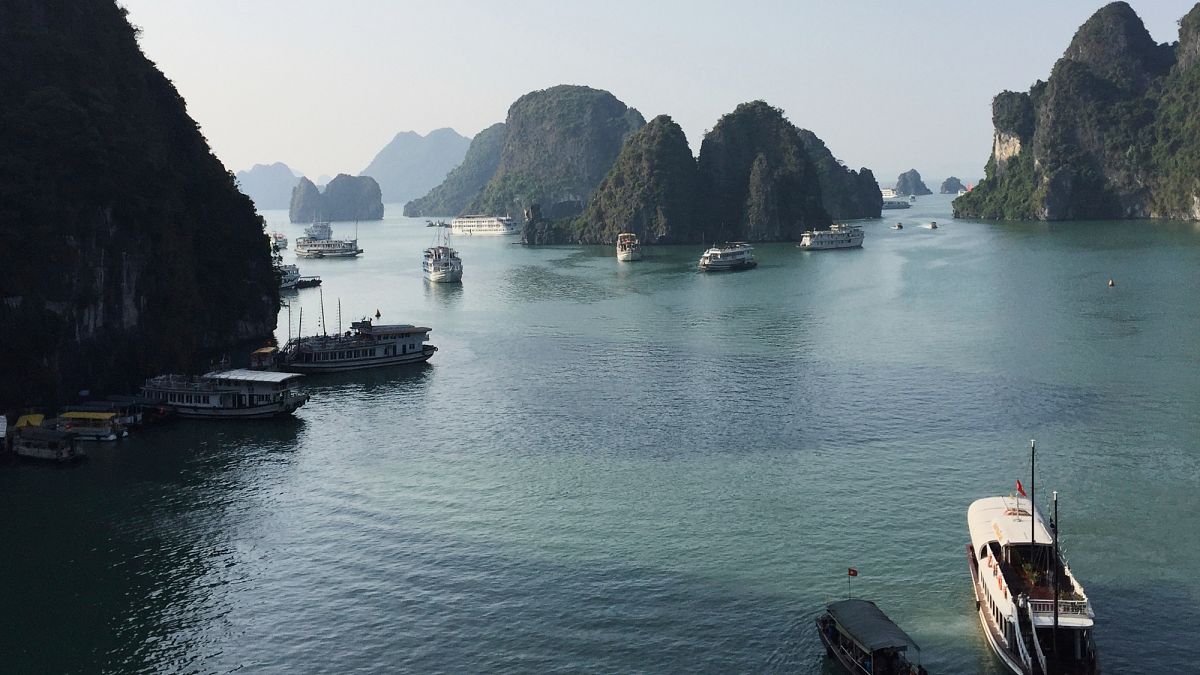

In recent days, the world has been a stage for a series of significant events that highlight the range of challenges humanity faces, both from natural phenomena and human actions. From severe weather conditions affecting parts of Asia to incidents impacting safety in urban centers, the planet’s diverse landscapes and societies confront both tragedy and opportunity.
In Vietnam, Ha Long Bay, a renowned tourist destination famous for its stunning limestone formations, was the scene of a devastating maritime accident. On a pleasant sightseeing trip that turned perilous, a tourist boat carrying over 50 people capsized amidst a sudden and fierce thunderstorm. The event led to a tragic loss of life with 38 confirmed dead, seven still missing, and ongoing rescue operations. The survivors tell of the chaos caused by towering waves and relentless winds, a sobering reminder of the power of nature.
Meanwhile, in South Korea, severe weather has also taken a toll. The nation is experiencing record-breaking downpours that resulted in widespread flooding and deadly landslides, particularly in Gapyeong County. At least 17 people have lost their lives amid these adverse conditions, with many others missing as the nation’s emergency responders work tirelessly to provide aid and rescue those in harm’s way. The powerful storms demonstrate the unpredictable nature of monsoon season in the region.
In another part of East Asia, Typhoon Wipha has hit Hong Kong, prompting the city to issue its highest storm warning. As the typhoon neared, it brought immense waves and heavy rains that led to the cancellation of flights and closure of schools. In response, residents have taken precautionary measures to protect themselves from the storm’s potential impact, showcasing the resilience and preparedness of communities frequently endangered by tropical cyclones.
Turning towards the realm of geopolitics and energy development, the conversation around the Gazan natural gas reserves has been reignited. Experts emphasize the potential economic benefits if the Palestinian territories are recognized as a state, which would clarify their rights to develop the Gaza Marine field. This development could significantly reduce their financial reliance on aid, hinting at the transformational power of natural resources when coupled with political progress.
In the arena of human conflict and urban safety, events in Los Angeles caught attention as an unsettling tragedy occurred when a vehicle plowed into a crowd awaiting entry into a nightclub, injuring 30 people. Among those injured, five remain in critical condition. The individual responsible, now in custody, faces serious charges, and the incident serves as a sobering reflection on the impact of personal actions on public safety.
Not far from this incident, an explosion at a Los Angeles sheriff training facility resulted in lives lost and further investigations. This event too underscores the constant need for attention to safety regulations and the immense risk faced by those who train and work in hazardous environments.
Finally, the ongoing conflict in Syria’s Sweida province continues despite calls for a ceasefire from the government. The clash persists between factions, including Bedouin and Druze fighters, revealing the complex and enduring nature of regional conflicts. While a declared ceasefire aims to bring peace, the road to achieving and maintaining it remains fraught with hurdles, signifying the stubborn nature of such protracted disputes.
These events across the globe remind us of the diverse challenges humanity faces, encouraging mindful reflection on both the force of nature and the repercussions of human actions in shaping the world we inhabit.
Source: {link}
